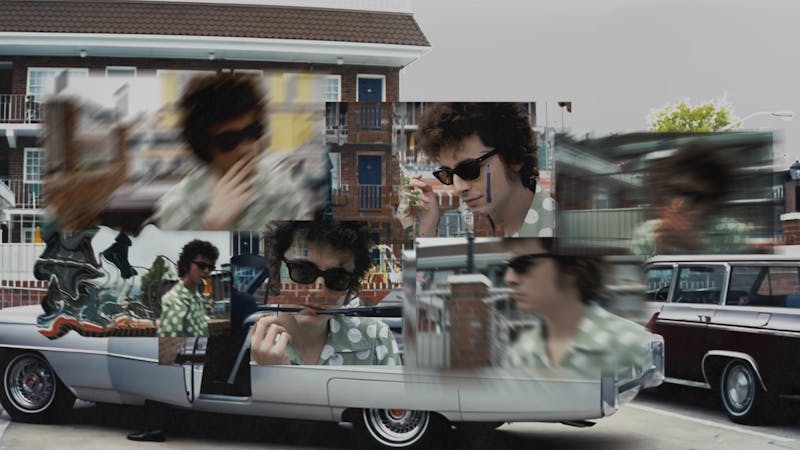Even from a Zoom–window–sized look into Bob Lord’s life, it’s immediately apparent that Lord loves music. The PARMA Recordings CEO joins our meeting from a swivel chair in what appears to be a makeshift studio space, grinning widely and surrounded by instruments, equipment, and music stands. It’s the kind of place where any musician would feel immediately at home; I know I certainly feel a comfortable familiarity upon noticing the clutter. It confirms for me that Lord is indeed the source of the spirit and deep love for music that you can feel behind any PARMA recording.
PARMA Recordings is one of the leading classical music labels in the industry, specializing in new art with an innovative twist. The company has been at the forefront of the classical music scene since the COVID-19 pandemic, responsible for producing some of the most ambitious, revolutionary projects in recent years, including the 2022 world premiere of a newly discovered string quartet written by an 18–year–old Leonard Bernstein, a large–scale collaboration with the London Symphony Orchestra, and, of course, works by The Crossing, Philadelphia’s own professional choir, which recently won its fourth Grammy.
Lord has been recognized by New Hampshire Business Review as one of the state’s “Top 200 Influential Business Leaders” for his commitment to both artistic and economic growth in New England. One of the most compelling things about Lord’s aforementioned commitment is his specific dedication to innovation in the arts and the industry, and our conservation only served to underscore this further.
When I ask about his passion for music and how it has motivated him in his career, he answers succinctly, “It consistently surprises me.” He launches excitedly into an anecdote about driving alone the week prior and encountering a piece that deeply moved him. Finding the name of the piece to be “Consort for Ten Winds” by Robert Spittal, Lord “sent him a fan mail message,” quickly discovering through Spittal’s reply that PARMA had in fact assisted in producing the piece. Lord laughed heartily, remembering this happy coincidence.
The anecdote is striking, namely considering there exists the misconception that classical music is an outdated (and therefore irrelevant) genre. To many, Lord’s discovery of such a touching, contemporary piece would seem like a fluke. When I ask his opinion on the general feeling among some populations that classical music’s days are over, he replies by explaining that fighting this notion is in fact a central part of PARMA’s work. He describes his deep interest in “creat[ing] premiere recordings of new works by living composers,” citing Caroline Shaw and her work with The Crossing as an example. He mentions also his interest in cross–genre collaboration as a method of dynamizing classical music, explaining passionately that “there are so many combinations of music left to be hybridized. … I’m interested in taking tight genre conventions and combin[ing] them with other genres with their own conventions. How do you make something out of that?”
We touch briefly on the problem of classical music’s close association with exclusivity, and Lord talks about his own unconventional journey to discovering the genre. “No one sat me down at a piano when I was five,” he assured me. Lord himself started as a bassist in a rock ‘n’ roll band, coming only to the classical side of the industry after discovering, in young adulthood, 20th–century classical music that spoke deeply to him. But as a kid, he wasn’t so sure about classical music, as he was a little intimidated by the seemingly insular nature of the classical world. He told me about visiting Tower Records in his youth, wanting to get his hands on some jazz. “In the back of the room was this glassed–in compound,” he recollects, “and that’s where the classical music was.” He explains that PARMA is invested in dismantling these systems and creating a culture of inclusivity. “All these hangups about how we interact with classical music,” he said, shaking his head. “No one should be made to feel bad about interacting with art.”
I leave the meeting feeling invigorated: excited by PARMA’s work, inspired by Lord’s words, and reflecting on the deep truth that drives PARMA’s initiative. The world would be remiss to lose the beauty of classical music, but sometimes the genre seems to insistently demand exclusivity, rendering it decidedly un–algorithmable and leaving it out of spaces where it might belong. During our meeting, Lord asked one rhetorical question that seems to summarize the many issues surrounding the genre: “[Is classical music] a museum? Or are we creating new art … maintaining an open sense of wonder?” Some labels may not be. But rest assured that Lord and PARMA are and will continue to.






